Preschool & Daycare
Multilingual Music & Movement
Train brains. Shape character. Build focus, creativity, confidence, and emotional strength in just 10 weeks
— through developmentally designed, joyous, Multilingual Music & Movement experiences, even before age 5.
We're Alabanza Music. We transform children's lives by revolutionising the way they learn.
Children Deserve More Than Ping-pongs and Sing-alongs
Parents & preschool directors don’t just want “music classes.” They want children who:
✅ Develop focus, memory, language, and coordination early.
✅ Build confidence to succeed in primary school and beyond.
✅ Experience the joy of music while strengthening brain pathways proven to support math, reading, and social skills.
Anyone can walk into a preschool with a guitar or tenor steelpan, but will that actually deliver measurable learning?
Most “music providers” have little or no early childhood qualifications.
Without understanding developmentally appropriate music practices (DAMP), activities are often cute, but not effective.
With 20+ years in education, international training, endorsements from the Early Childhood Music and Movement Association, USA (ECMMA), Department for Creative and Festival Arts, The University of the West Indies, (DCFA, UWI) St. Augustine and an award-winning, research-backed curriculum MusikGarten, Alabanza Music offers parents and schools real growth.
Why choose Alabanza Music?
We’re the only certified, internationally endorsed Early Childhood Music & Movement programme in Trinidad & Tobago.
We offer the most comprehensive and enriching introduction to music and language education in the early years, grounded in research-based methods.
Our age-specific curricula, designed for babies, toddlers, preschoolers and older children, provide a joyful and accessible way to experience music, movement and multilingualism.
Your children will be guided by highly qualified and well-trained early music educators (bilingual or multilingual) who are passionate about children's development.
We not only teach the little ones, but also help empower teachers and parents with the knowledge and skills to be able to support their children's early learning through music both in school, and at home.
By choosing Alabanza Music, school administrators can be confident in providing their students with the best start in music and language education, fostering a lifelong proficiency and resilience.
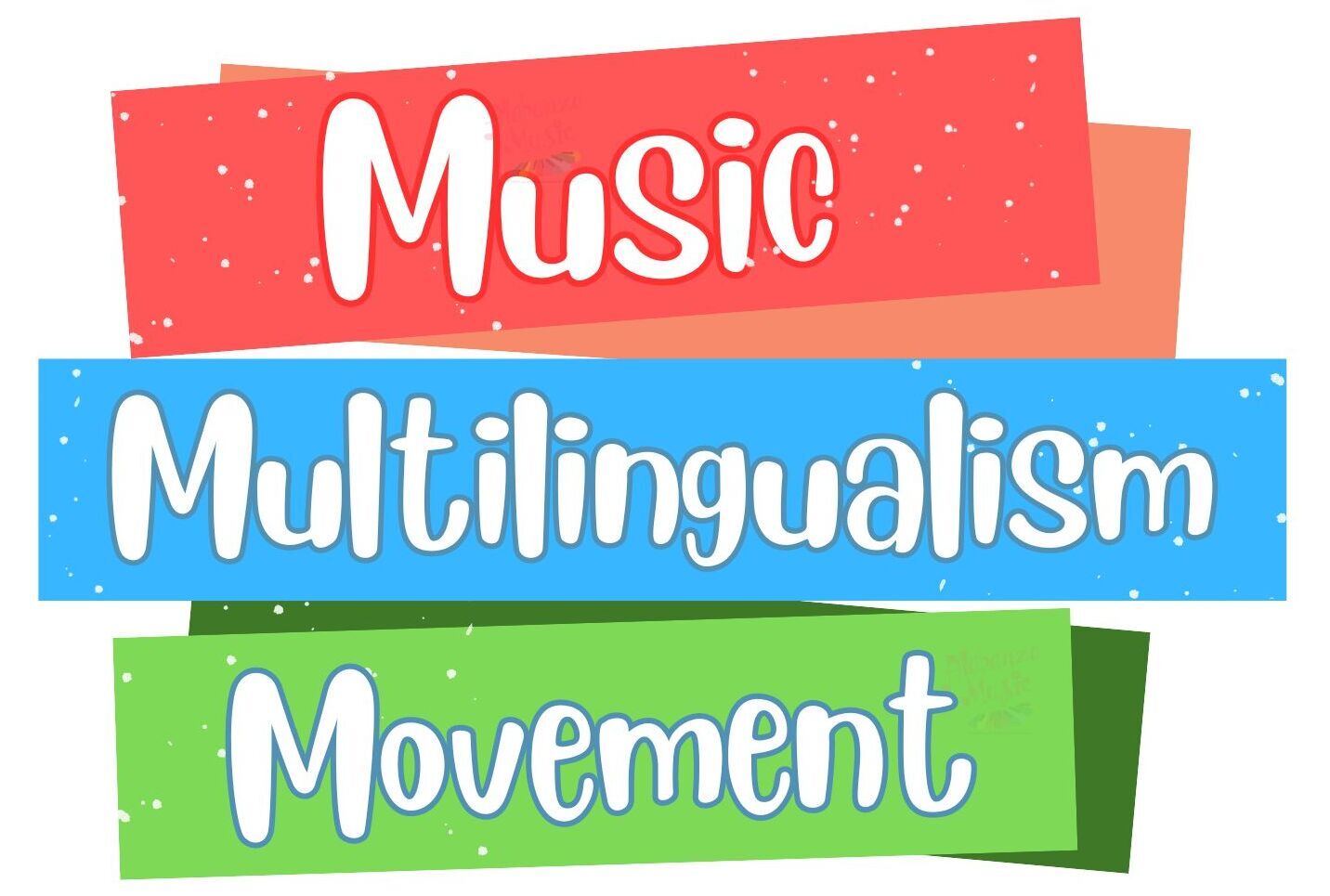
Is music important for growing children?
Learning music is a foundational skill that supports and enhances all other areas of learning. It helps integrate sensory processing—auditory, visual, and motor functions—which is crucial for a child’s overall development, particularly in the early years.
Fast-track my language learning
Music and language are linked in the brain so the more children develop in musical ability, the faster language develops. This opens up a world of possibilities for typical as well as neurodiverse children and their ability to communicate.
Help me regulate my emotions
Hold on now, did you know that those little brains need rhythm? Yes the prefrontal cortex, the engine room of emotions gets a boost with music training, making it much easier for your children to hold on, wait their turn, with less frustration!
Make me a more focused listener
Music training sharpens the brain’s ability to process sounds, improving concentration, attention to detail, and the ability to follow instructions. It also enhances auditory discrimination, helping students excel in music, communication and everyday learning.
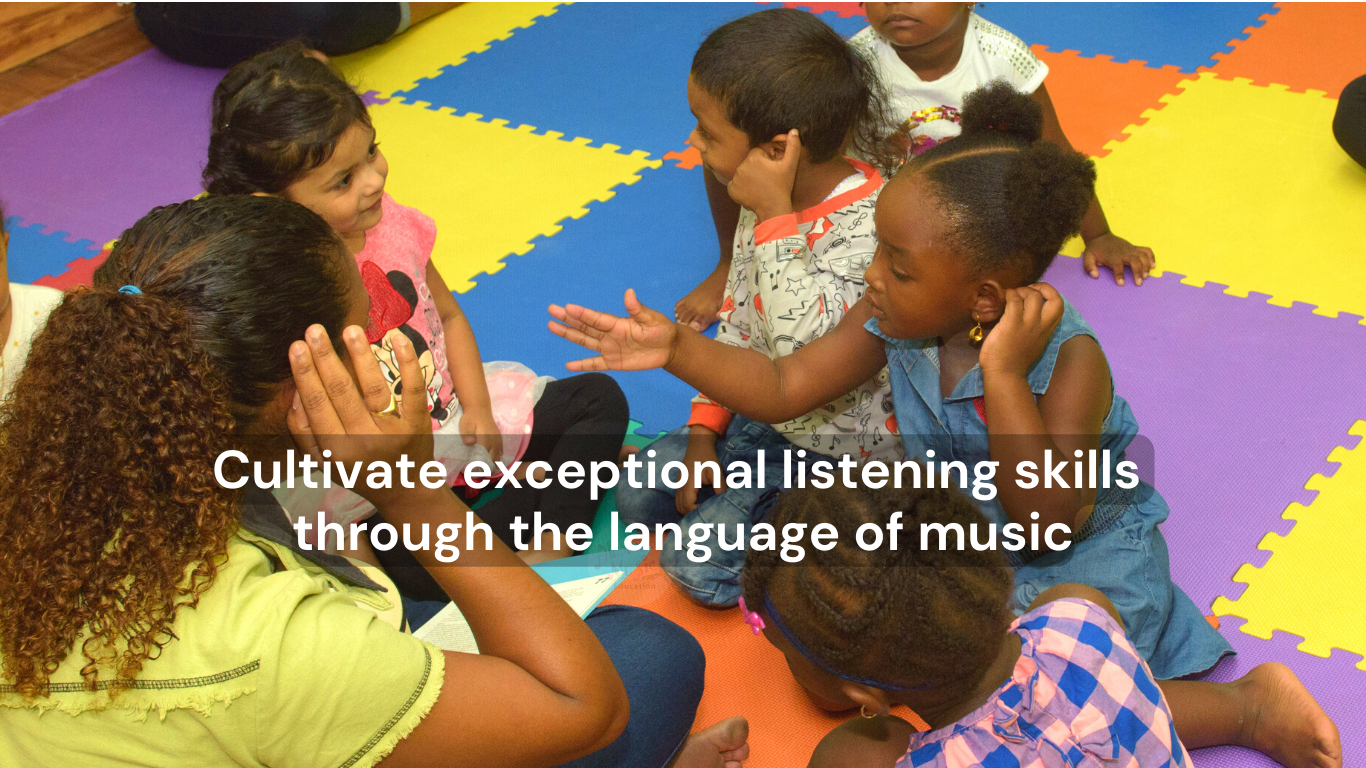
Why Music & Movement Wins Over Swimming & Gymnastics
When parents and preschool directors choose enrichment activities, they usually compare gymnastics, swimming, and music. Here’s the reality:
Gymnastics develops motor skills.
✅ Music does too — and it also lays the foundation for communication and creativity.
Swimming may save a life someday.
✅ Music shapes brain growth every day, improving academics, relationships, and emotional health.
Only music hits every domain at once:
Cognitive. Emotional. Physical. Social. No other activity gives children this 360° boost.
Supercharge the Brain with
MULTILINGUAL MUSIC & MOVEMENT
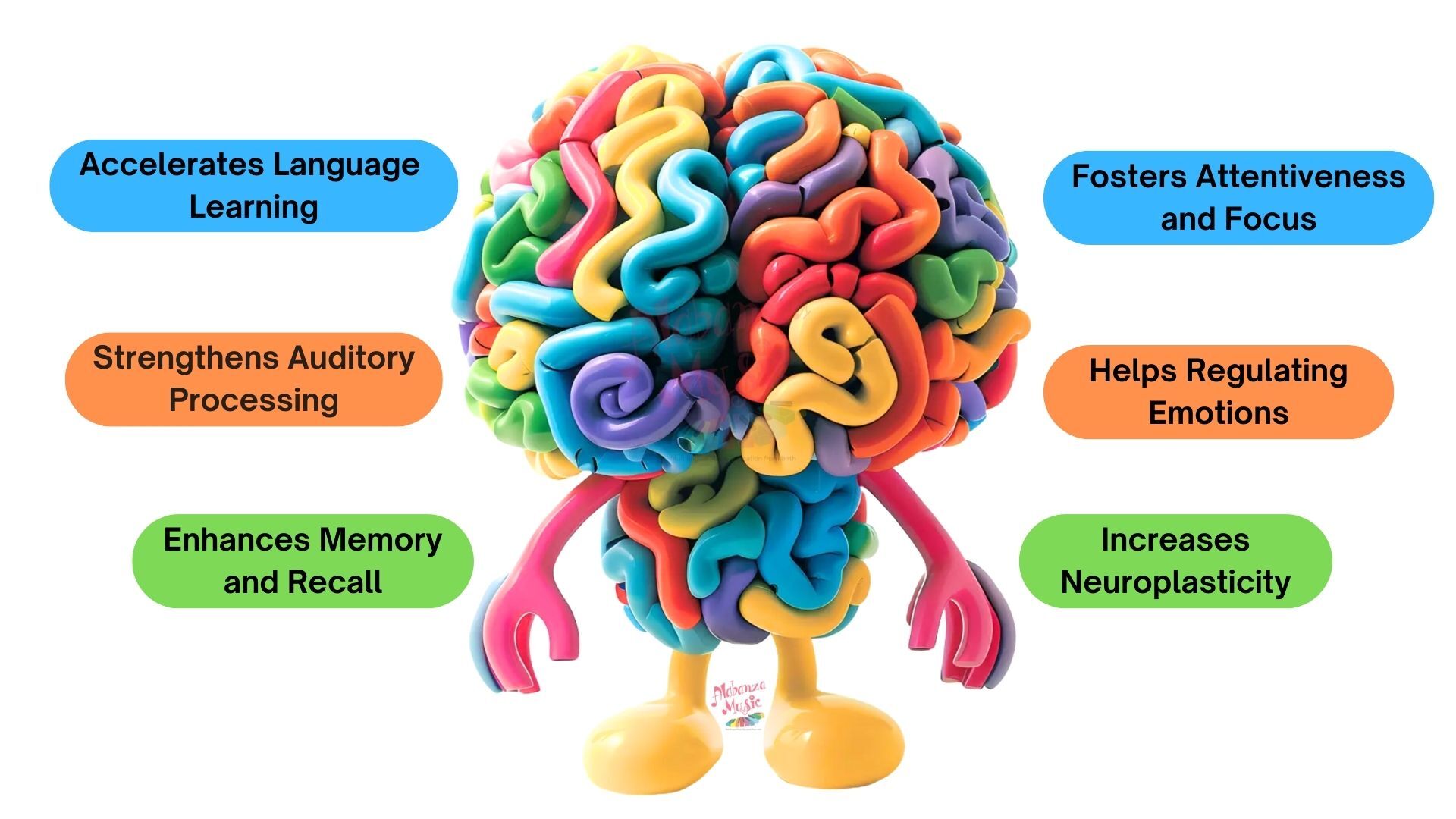
<<By offering intentionally responsive, play-based, developmentally appropriate music engagement opportunities, adults honor young children’s agency for music making.>> (NAfME)
TocoPanyol® Early Years Music Programme
Preschool Multilingual Music & Movement — Live, Recorded, and In-Person delivery to fit every school's needs.
Brain-Building Curriculum
Multilingual songs + movement activities that support language, focus, and coordination.
Teacher & Parent Support
Live parent education session and practical resources for classroom and home reinforcement.
Flexible Delivery
Recorded, Live Online, or In-Person options with scalable pricing for larger school groups.
TocoPanyol® Early Years Group Packages
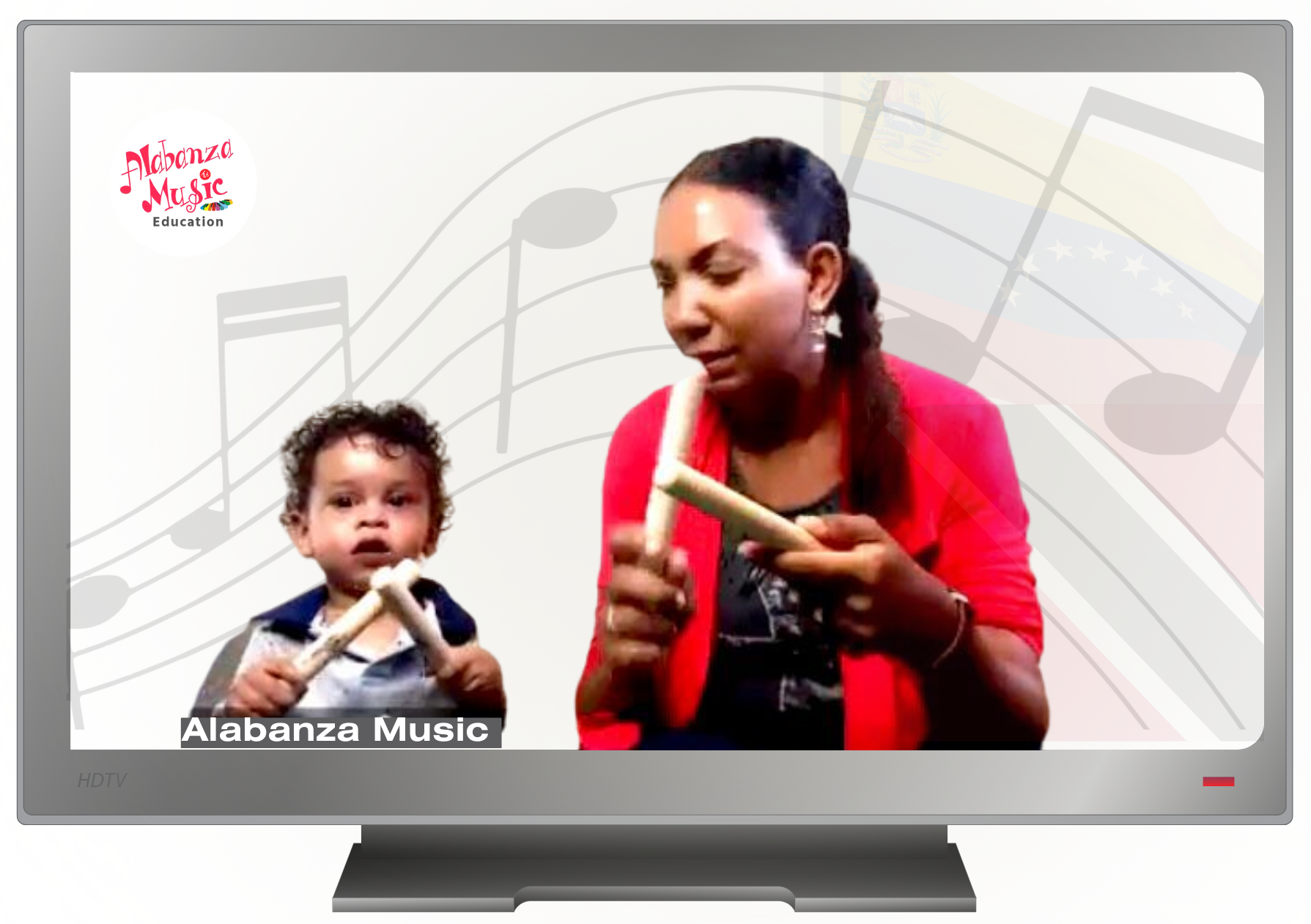
Recorded - On Demand
Best for flexibility
10 pre-recorded multilingual music & movement sessions, parent guide, and streamable audio for home practice
What's included?
• 10 sessions (pre-recorded)
• 1 Parent/Teacher Education session (live/recorded)
• Exclusive access to our multilingual and multicultural audio materials
• Instruments sold separately
Starting at
TTD 150
USD 25
per child for a 10-week term
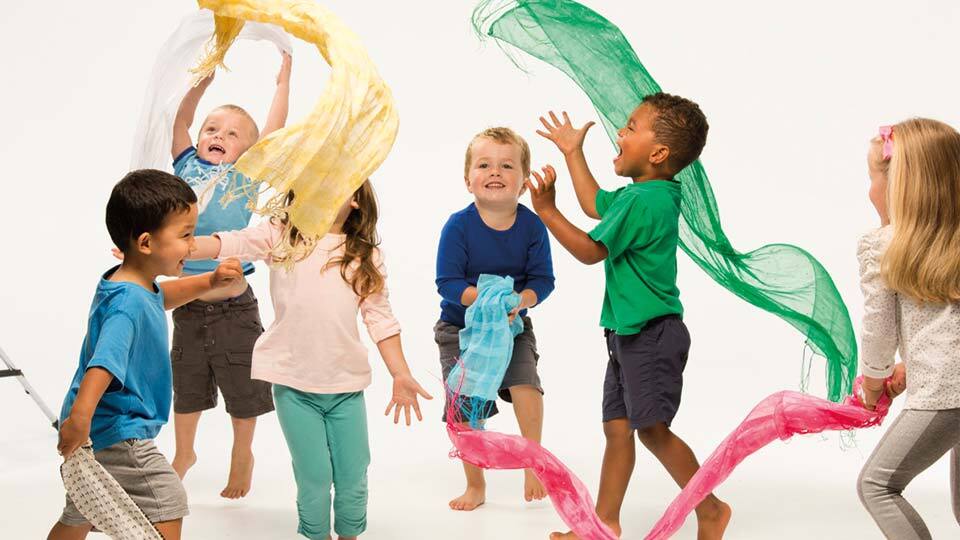
LiveStream - Daytime
Most Popular
10 live engaging multilingual music & movement sessions via Zoom, parent guide, and streamable exclusive audio for home practice
What's included
• 10 live sessions (45 min)
• 1 Parent & Teacher Education sessions (live/recorded)
• Exclusive access to our multilingual and multilcultural audio materials
• Instruments sold separately
Starting at
TTD 250
USD 35
per child for a 10-week term
Schedule:
Wednesdays 11:00am EST
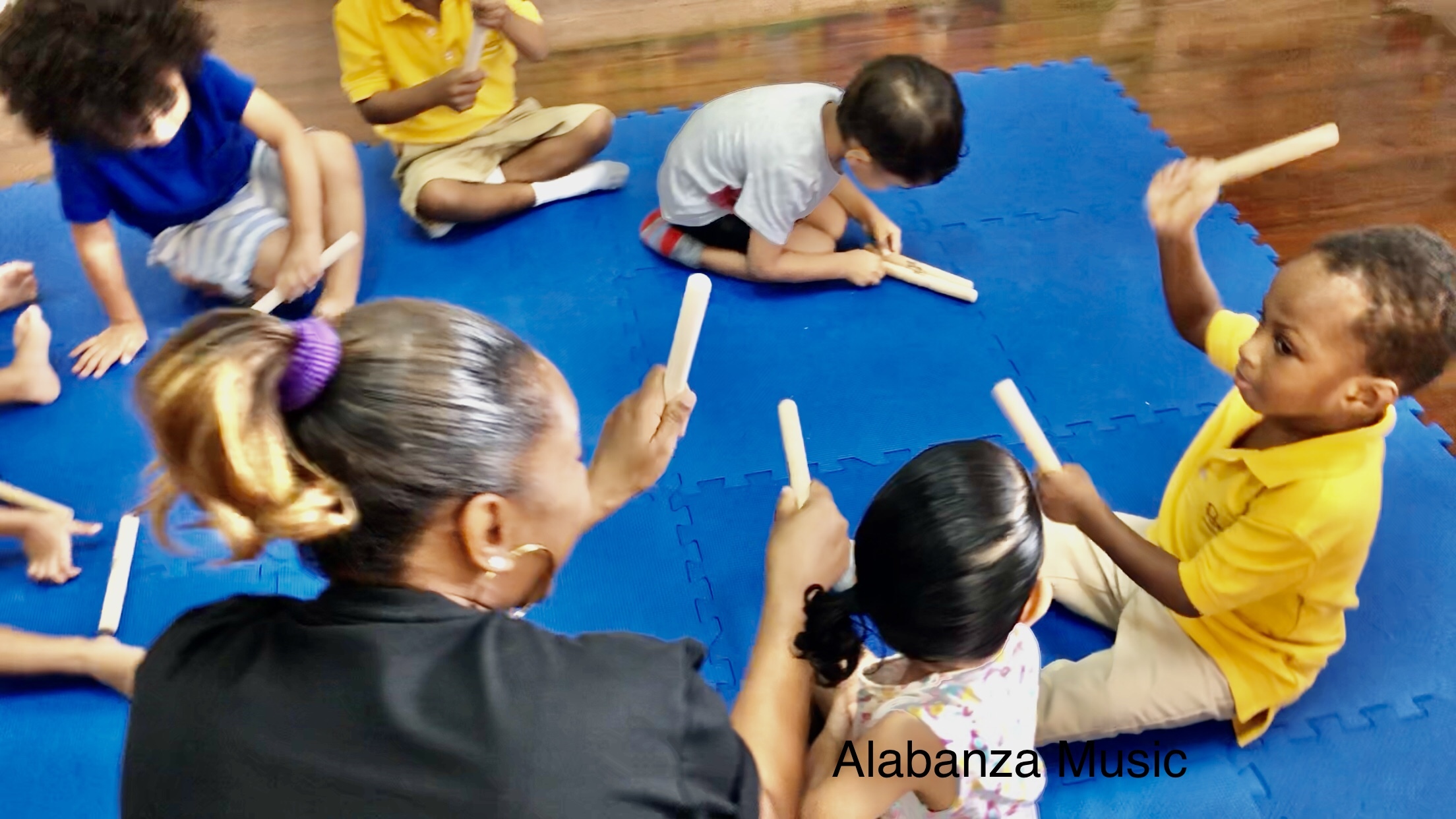
In-Person with TocoPanyol
On-site / Flagship
10 Weekly in-school sessions with multilingual immersion, parent education, and streamable exclusive audio for home practice. Bonus celebration option for Term 1
WHAT'S INCLUDED
• 10 interactive sessions (45 min)
• 1 live Parent & Teacher Education sessions with Q&A
• Access to classroom instruments
• Exclusive access to our multilingual and multilcultural audio materials
• BONUS! - final celebration session add-on for term 1
Starting at
TTD 390
per child for a 10 weekly-week term
For school communities larger than our minimum requirement of 20 children, please get in touch with us for scaled fees for your school.
How can this programme benefit your school community?
Our unique combination of music, movement, and multilingualism positively impacts children's aesthetic, expressive, emotional, intellectual, social, physical, moral and creative development. This holistic approach guarantees a well-rounded and enriching educational experience, setting students on a path to success!
We're making life easier for parents and teachers
Parents don’t need to buy instruments, apps, or add extra activities to their already full plates.
Preschools don’t need to train teachers in a new method or redesign their curriculum.
We handle everything: expert-led sessions, resources, and seamless integration into preschool schedules.
What should you expect to see happen besides becoming more musical?
✅ Children are more attentive, joyful, and emotionally regulated.
✅ Parents notice real developmental growth at home.
✅ Teachers report smoother transitions and improved classroom behaviour.
Some of the organisations we've served
Preschools & Daycares
Island Kids Learning Centre
Jems and Jewels Daycare and Learning Center
Smart Start Academy
Fundamentals Playgroup and Preschool
The Children's Legacy Preschool
Rosetta's Early Childhood Development Enhancement Centre
Fast Learner's Academy
Celebrate the growing independence of preschoolers with multilingual music and movement through school-wide implementation of our tailor-made curriculum.
Primary
St. Gabriel's Girls' R.C. School
Regulus Learning Academy
Diamond Vale Government
Specialist Learning Centre
Provide a solid foundation in Music Literacy and fast-track Spanish & French acquisition with broad-based music and movement experiences to primary schoolers.
We specialise in school-wide implementation of our tailor-made curriculum inclusive of building enriching choral and instrumental ensemble experiences alongside Spanish language development.
Secondary
St. Joseph's College
Williamsville Secondary
NorthGate College
St. Augustine Community College
Gasparillo Composite
St. Joseph's Convent San Fernando
Other
Alliance Française of Trinidad and Tobago
Age with Joy Home
St Vincent De Paul's Home for the Aged
Secretariat for the Implementation of Spanish
National Parang Association of Trinidad & Tobago
Trinidad & Tobago Unified Calypsonians Organisation
FAQ
What are the goals of the programme?
1. Creating a stimulating and inclusive learning environment that promotes creativity, self-expression, and cultural awareness.
2. Fostering children’s multi-language development by engaging them in singing games, stories and poetry, multilingual repertoire, which nurture verbal skills, memory, creativity and emergent literacy skills, enabling children to become more confident communicators.
3. Helping children learn to control their bodies by engaging them in music and movement activities designed to nurture gross and fine motor skills, foster impulse control and recharge their brains, giving them the mental energy needed to succeed in school.
4. Developing focus by engaging children in listen, move and play activities designed to nurture aural discrimination skills, targeted attention and concentration.
Why combine Music and multilingualism?
You want to understand why we combine music and multilingualism? It's not complicated. It's about giving your child an REAL advantage in a global world.
The Brain's Secret Weapon: Music Is Language
Listen, the science is clear. Your child's brain isn't guessing; it's prewired for greatness. Daniel Levitin, the big brain behind This Is Your Brain on Music, says it straight: "Your child’s brain is prewired to learn music, just as it’s prewired to learn language."
This isn't theory; it's neurological fact. When your child engages with music, they're not just humming tunes. They're firing up the exact same brain regions they use for language. Music hits both sides of the brain—it's a full-spectrum brain workout that naturally supercharges their linguistic abilities. We're talking about accelerated language acquisition, just by having fun.
Building Global Dominators
Now, let's talk about the world they're stepping into. It's connected. It's diverse. And if your child is only operating in one language, they're already behind.
Our multilingual approach isn't just about speaking Spanish or French. It's about wiring their minds to understand diverse cultures, different ways of thinking. We're not just teaching words; we're building empathy and respect for differences. This isn't fluffy idealism. This is laying the groundwork for a future generation that leads.
We're giving your child the cognitive, linguistic, and socioemotional foundation to not just survive, but to thrive and dominate in a globally interconnected world. This is about future-proofing their success.
What does a multilingual music and movement class look like?
You want to know what a MusicVersity class actually looks like for your preschooler? It's not just about keeping them busy. It's about building a sharp, culturally intelligent child from the ground up.
The MusicVersity Preschool Blueprint: Where Play Meets Power
At Alabanza Music, we're not just playing songs. We've engineered a dual-impact curriculum: music education fused with genuine language immersion. This isn't just casual playtime; it's a strategic brain workout.
Our linguistic journey starts strong with English and Spanish, but we're not limited. We pull from the raw, authentic power of Trinbagonian and Venezuelan folk heritage. Think traditional vibes, then layer in contemporary beats from the Spanish and French Creole-speaking Caribbean, and even global rhythms. This isn't just diversity; it's cultural intelligence in action.
And movement? That's not just wiggling. That's how children engage every single sense, locking in musical understanding and body awareness. Movement amplifies the learning experience, making it not just joyful, but unforgettable. We're talking about deep, memorable learning that sticks.
This is how we create well-rounded, culturally aware, and cognitively agile kids. This is the MusicVersity difference.
Should Music class be extra-curricular, co-curricular or core curricular?
Forget the outdated labels. For years, music has been shoved into the "extra-curricular" box. But let's be real: the only thing "extra" about music is that it makes your children extraordinary!
This isn't just an opinion; it's brain science. Music isn't a sideline. It's a power-up for their entire development. We're talking documented activation of brain regions, rocket-fuel for language, and unleashing raw creativity from the earliest age.
Music and foreign language? These are core subjects in primary and secondary schools globally, but somehow, they're often overlooked in early childhood education (ECCE) settings. That's a missed opportunity that could cost your children.
The truth? Ensuring music is a core part of the curriculum isn't a luxury. It's a necessity. It guarantees every child, regardless of background, gets equal access to these undeniable advantages. It builds a rock-solid foundation for their entire educational journey and sets them up for future dominance.
So, the question isn't if your children need music. It's how fast can you make it a core part of their world?
Ready to bring TocoPanyol to your school?
Contact our team to discuss scheduling, pricing, and pilot opportunities.


